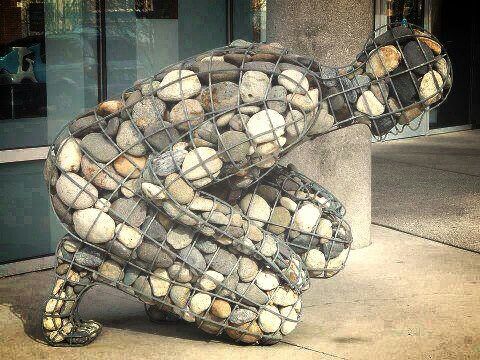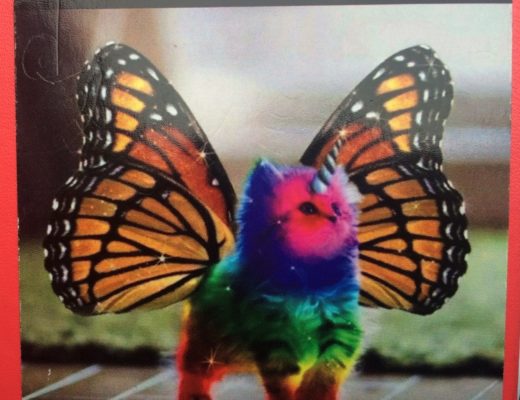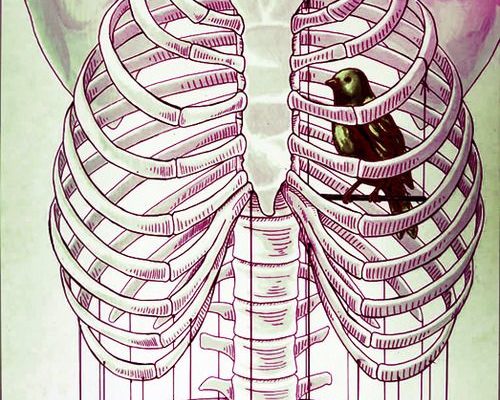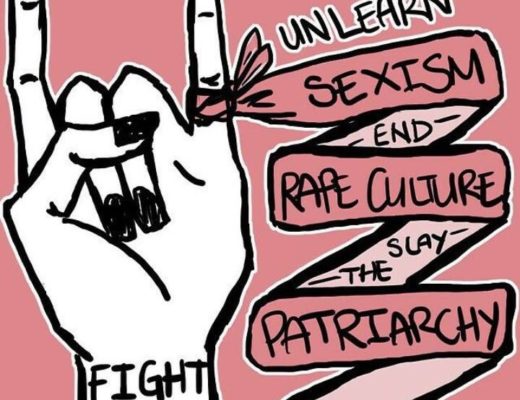This blog was originally hosted at Empty Cages Design.org as part of a series on Overcoming Burnout from 2016-2017. It has now been turned into a book that is available at: https://solidarityapothecary.org/overcomingburnout/
Since my best friend in prison was diagnosed with cancer I feel like I’ve been in an emotional incinerator. I’ve felt so knocked sideways that most of the time I can’t even work out what I’m feeling. Yet, when I sat with my thoughts late one night with some stillness from the day, I realised I am just completely, utterly and full-bodily overwhelmed with fear.
Fear not just that she will die, but that she’d die in so much pain, that she’d change from the incredible anarchist punk once-in-a-million person to someone lifeless, that the next few months I will have to bear witness to this change and be powerless to help.
Fear that the prison will block my attempts to support her and that I won’t have the energy to fight them. Fear that her partner who is an IPP in prison will kill themselves from the grief. Fear that I will forever live with a sense of failure of not getting them free. Fear of my life falling apart, descending into chaos. Fear of the rage I will feel and what that could make me do. Being all too familiar with grief, holding a fear of if I feel all those feelings again I don’t know if I will survive.
Being able to identify and articulate these fears hasn’t taken them away, but it has meant I feel familiar with them, I can feel what is happening with my body when I’m heavy with sadness. Observing my own fear has meant I can begin to support myself better during this time.
These feelings have been generative of reflection and reading, and the intention of this post, therefore, is to explore fear in relationship to struggle, burnout, and recovery.
When I think of fear, I always think of this hardcore band called Stay Gold. I listen to them when experiencing angst in relationships. Their powerful emotionally expressive music makes me access certain feelings that I’m often repressing. Sometimes I’ll only even notice my heartache because I’ve unconsciously started to listen to them in my headphones. In their track ‘On the homefront’, there are a couple of lines that return to me often:
“I’m not strong enough to hold on to this. Only cowards make their choices out of fear. I’m not smart enough to hold on to you. I guess it’s just my luck, couldn’t we have met next year?”
For someone with a simultaneous fear of commitment, and fear of abandonment, these lyrics pack a punch. But it’s the ‘no choices of out fear’ phrase that comes up for me so much when making decisions. Oftentimes, when I’m scared or confused, I ask myself am I making this choice out of fear? Am I avoiding falling for someone, because I don’t want to be hurt? Am I avoiding undertaking a certain course of action, because I’m scared of prison? I try to listen to my body and get to the root of that fear because I never want to be ruled by it.
My best friend Gilly who died in 2015 was perhaps one of the most fearless people I’ve ever met. Growing up with her as a role model, she seemed completely fearless. She was the most unrelenting ALF activist I’d ever encountered, seemingly unafraid of returning to prison, bold and brash and not scared of violence or injury or any repercussions of living on the front lines her whole life. My growing-up intertwined with her reduction in capacity. I came to witness the effects of this particular fearless life – the impacts of smoking, poor nutrition, lack of sleep, prison, and poverty. Her life was dramatically cut short (yet she was at peace with that, and you can tell she knew she had lived ten lifetimes in one and was happy with her lot).
But as I came of age, I couldn’t help thinking, maybe if she had been more afraid she would have made different choices and she might still be with me today. For example, it is my fear of poverty that made me invest so many hours of my life into starting a workers co-op and developing a livelihood that could sustain me as an organiser long term. It is my fear of cancer that stopped me from smoking. And now, recovering from my illness, it is ultimately my fear of a relapse that moderates my behaviour more than anything else. Yes, I’ve learned lots of groovy nourishing self-care tools, but actually it’s my fear of pain and fear of further disruption in my life, that is the biggest factor in my decision making.
For me, what encapsulates my period of burnout more than any other emotion is fear and its balance in my life. When I was in this grim spiral last winter, hallucinating from exhaustion, emotionally turbulent in the extreme… the scales between fear (rational and irrational) and more grounded decision making or stable feelings were pretty far tipped. I felt full of fear. I awoke with a sense of fear in my stomach each morning. Fear that I was getting sick, losing my marbles or burning out. Fear that the State were going to build all these new mega-prisons and I had zero capacity to organise. Fear that we would totally, utterly fail to stop them. Fear that I’d never have a long-lasting relationship, fear that I was unloveable, fear that everyone I ever loved would eventually leave me high and dry. Fear that my friends would die in prison. Fear that my future felt like a big black hole of resistance, repression, and survival, while trying to not let the trauma of it all eat me alive.
My months of chronic pain and interactions with the medical industrial complex brought me more fears. Fears of pneumonia, blood clots, bone cancer. Fears of ‘malfunctions’ with my heart or lungs. Fears that I would never get better.
Miriam Greenspan, who wrote the book ‘Healing through the dark emotions. The wisdom of grief, fear, and despair’ (that I really recommend reading) writes how:
“Fear arises in any situation where there is a threat of loss or harm to the body, mind, and spirit. It is a basic emotion, built into the biological organism. Part of our deepest instinct for survival, fear is our emotional alarm system.” She continues, “What fear tells us is that something requires immediate and close attention” [1]
If I hadn’t been so scared I wouldn’t get better, it’s unlikely I would have researched everything under the sun that could potentially help. If I hadn’t been so concerned about my well-being, I probably wouldn’t be blogging or doing any emotional nitty gritty work at all. Fear has been a big mirror in front of me telling me to sort my life out before more harm comes my way. Fear has been my friend, and for this reason, I encourage other people to not suppress these feelings. What are your fears telling you?
Our oppressive gendered culture often determines the way we are socialised to interact with our fear. There is conquering and carrying, and everything in between. Miriam describes how “The culture of patriarchy punishes fearful men and fearless women.”
Growing up in the pretty macho animal liberation movement, it was clear how culturally pervasive it was to not [appear] to be frightened of prison. Yet for something allegedly not scary as an experience, we never asked ourselves why so few people returned to the movement post-prison. We failed to have conversations about our fears, at least in public. I was fortunate that my friendships with prisoners introduced me to the reality of these experiences, rather than what was published in support group newsletters. Yet I still didn’t tell people I was afraid. The day I had my bail revoked to start my prison sentence, I told everyone I wanted to go alone to court. In my head, this was based on not wanting to upset anyone, but actually, on reflection, I think it’s because if no one was there then no one had to bear witness to my fear.
Miriam encourages us to “Think of fear not as a weakness but as information, a signal of unsafety, a useable energy, and a way of knowing.”
So right now, when I wake up, and I feel fear in the pit of my stomach about Sam dying, I acknowledge my fear. Because it’s this fear that is motivating me to stay on top of HMP and fight any neglect or poor treatment she is subjected to. It is this fear that means I love her fully and passionately, aware these may be my last months with her. And it is this fear that fuels my rage and power as an organiser to try to dismantle the prison system. So thank you, fear, for everything you bring to my life. I am not weak because I feel you, I am stronger because I hear you and I act.
My call to us all, therefore, is to think deeply (or more so, feel deeply) our fears. Talk about them in our groups. See how we can use this feedback and guidance to improve our lives, make our movements more resilient and ultimately more effective in destroying the systems that thrive on fear and their very real power over us.
Miriam writes how in these times:
“Our fears are rational, largely transpersonal, and overwhelming. They are also largely denied. In this unprecedented world context, fear is continually triggered and benumbed. Isolated in our own skins, without a community in which our fears can be shared, validated, and addressed, the authentic experience of fear in our time has become almost impossible.”
Even though in our society where there is a definite divide between the daily fears of oppressed groups (being deported, being targeted by the police, being attacked for being trans etc.) and those with different layers of privilege, fear ultimately is a universal experience. Miriam says that “Almost any phobia or fear you can name, at its core, gets down to these six: fear of pain, loss, death, vulnerability, isolation, and chaos.”
When people in our groups and collectives are coming from such diverse backgrounds, talking about our fears together (and explicitly looking at how race, class, gender, age, health etc. intersect with these) could be really powerful and generative of new ways of interacting with each other. If we can share fears, validate them and address them collectively, imagine the strength we could find to transform our lives.
References
1. Healing Through the Dark Emotions: The Wisdom of Grief, Fear, and Despair, Miriam Greenspan





No Comments